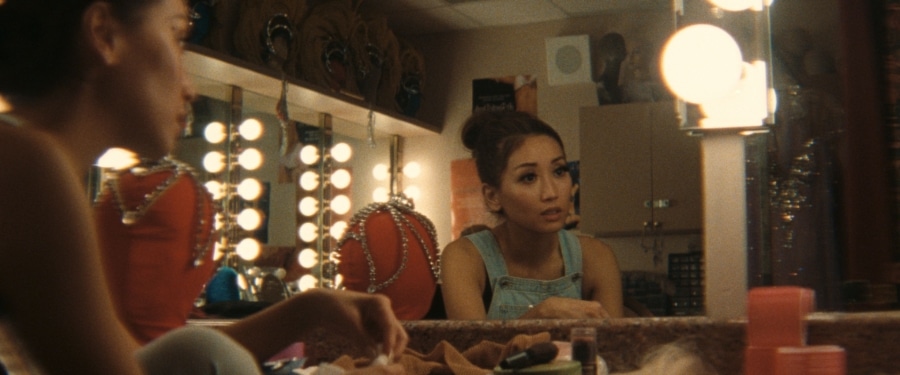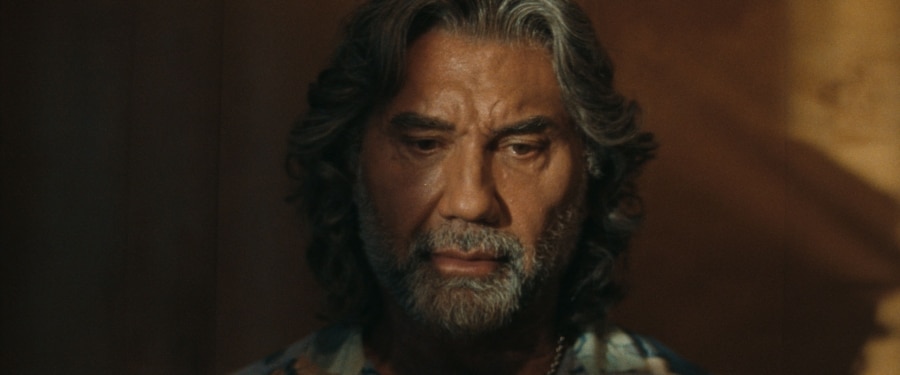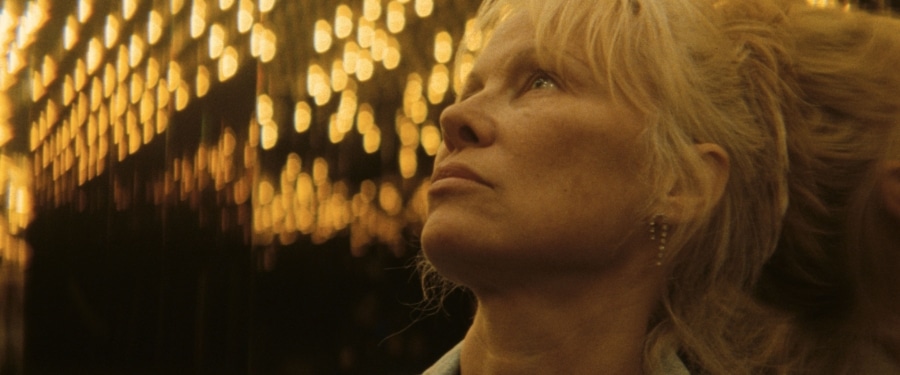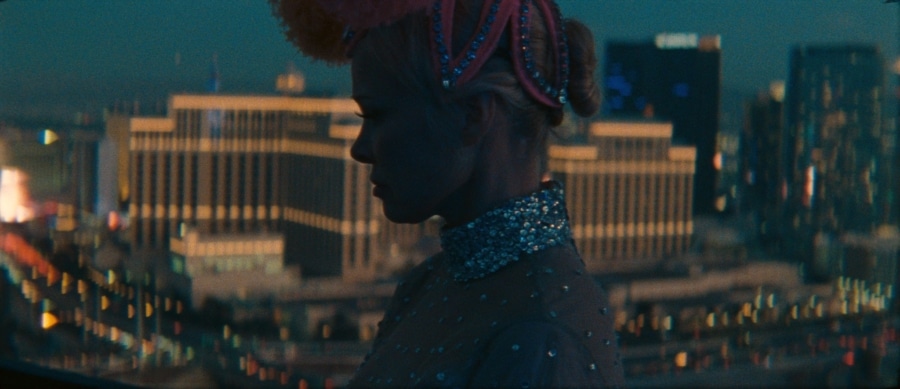Pamela Anderson is a figure in pop culture dating back to the late 80s and was pretty much all over the place in the 90s. The celebrity has had her hand in modeling, writing, media, and acting in various ways, making her a household name. True that her most notable acting gig was the hit action drama series Baywatch, but she’s had a go at other lesser-known projects. Yet, her encounter with filmmaker Gia Coppola and writer Gersten brings her acting to a new level with The Last Showgirl, and it might be the comeback she’s been looking for. However, the film isn’t all it’s cracked up to be.
The Last Showgirl, directed by Coppola and written by Gertsen, follows a successful, seasoned showgirl, Shelly Garner, played by Anderson. The Las Vegas show she’s been involved with for over three decades is ending, and now Gardner has to come to terms with her life choices. The starred-studded cast features Oscar-winning Jamie Lee Curtis (Annette), Dave Bautista (Eddie), Brenda Song (Mary-Anne), and Kiernan Shipka (Jodie). Many factors make this movie worth watching, but the first thing to consider is Gersten’s script.

The story and concept are an intriguing way to explore the themes of regret and reflection. If the movie were to be compared to another, Robert Siegel’s script, The Wrestler, comes to mind. The story follows an aging entertainer who lives a life of excess but must come to terms with the repercussions. Both characters are in a field of entertainment that promises no future but sees the beauty and art in it. The Last Showgirl is fascinating to watch because it doesn’t hold back the hard truths of that lifestyle and gives me the view that I didn’t expect to want.
Gertsen’s writing is tight for half of The Last Showgirl and gives enough material for the actors to chew. I was given the right amount of background for the characters through the dialogue to get a real sense of where everyone was coming from. The story paints these characters as broken souls beaten by time and circumstances. Consequently, the characters find a way to connect to one another and give the actors abundant material bounce off one another. Additionally, the script wouldn’t have been allowed to flourish if it wasn’t for the actors.
Bautista has come a long way as an actor and continues to do so in The Last Showgirl. He brings a high level of authenticity to his character. I got a true, genuine sense of his role as someone put through the wringer of life and only finds home with the people he’s connected with at this Las Vegas show. Curtis plays Annette skillfully as a former showgirl turned waitress. She pulled from many dramatic roles, with some comedy, giving her character depth and nuance. It felt like she has only continued to improve at this point in her career. Yet, the one who shows a whole new level of their acting skills is Anderson.

Just like how The Wrestler was written for Mickey Rourke, The Last Showgirl was written for Anderson. Many performers pull something from their experience to bring life to their character. Anderson brings all of her life and injects it into Shelly. Shelly’s character traits and demeanor appear as an unadulterated reflection of Anderson, possibly many of the things she’s had to face. It’s a huge step up in performance from her, and I wouldn’t be surprised if we were at the beginning of Anderson’s renaissance in acting.
The Last Showgirl works for the most part, but the film does a massive nosedive in quality by the middle of the second act.
I was fully invested in the movie, but it became evident that most—if not all—of the characters would not have any resolution by the time the film ends. Shelly gets into this mode of blaming everyone at the end of the second act and is put in her place when reality finally hits her. It would’ve worked if she had learned from that, but she doesn’t, and that thread goes nowhere. The same goes for most of the other characters. The Last Showgirl set up these arcs for Eddie, Mary-Anne, and Jodie, but nothing came of those arcs and left me frustrated.
Gia Coppola comes from the legendary filmmaking family, but that level of talent isn’t there. Her direction starts the movie on a promising note but becomes stagnant as the film progresses. There are several scenes with medium-close shots that make the story more intimate. However, it’s all thrown away because Coppola needed to keep the camera unnecessarily moving. That decision didn’t permit some of the right emotional punches the scenes call far.

Lastly, the movie takes this weird turn where it’s implied that Shelly’s reality has broken. That idea was never set up during the movie and certainly doesn’t feel earned. It’s like the film just stops with Coppola and Gersten writing themselves into a corner without figuring their way out.
The Last Showgirl showed much potential at the movie’s beginning with the cast and writing but ultimately s**ts the bed. Most of the cast brought their “A” game with Anderson, showing she has what it takes to be a dramatic actor. Gersten’s themes and underlying message hit their mark, with Coppola establishing a strong capability to translate to the big screen. Nevertheless, the movie broke my heart because all that hard work ended nowhere. The Last Showgirl feels like half a movie, and the direction later becomes baffling. I really wanted to like the film but ended up finding it disappointing.

